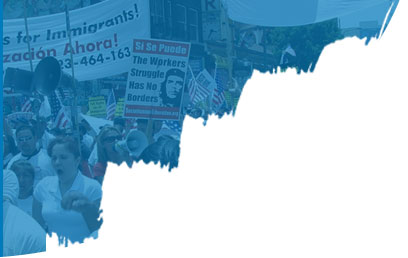
Child Trafficking Needs Attention Now More Than Ever
The economic fallout of the covid-19 pandemic has been well-documented, with experts predicting that some industries, such as restaurants and airlines, will take years to recover. However, as is often the case in times of widespread crisis, black market businesses have thrived over the past year – including the sale of fake covid tests, “cures” and other medical supplies, as well as the smuggling of drugs and people. Human trafficking was on the rise long before covid. According to a recent report released by the United Nations on Drugs and Crime, there was dramatic uptick in 2018. While international trafficking has decreased due to border closures during the pandemic, victims are still being bought and sold within countries.
As usual, children are the most vulnerable. They are easily groomed or lured with gifts, both in person and online; they are also the least capable of escaping their captors or alerting others to their situation. Oftentimes, they don’t even know that what is happening to them is wrong. Kids in the foster care system are at even greater risk, as many have already experienced a great deal of trauma and crave attention and love. In fact, foster kids accounted for 60% of those recovered in FBI trafficking raids in 2013. Child advocates have long lobbied for an overhaul of the foster care system, including extra protections against trafficking, yet tens of thousand of kids continue to fall through the cracks each year. Clearly, we need more “boots on the ground.”
If the pandemic has taught us anything, it’s that we are responsible for the wellbeing of those around us. When we walk into a store unmasked, we are not just putting our own health at risk, but the health of everyone there, and their loved ones as well. It has also given us the opportunity to become more aware of our surroundings. For example, while working from home we might meet neighbors we never saw when we ran out each morning to catch that early morning train or bus. We might also take notice when something is not quite right. Trafficked children are not always easy to spot, but there are warning signs, such as the child’s physical appearance (i.e. disheveled or malnourished) and behavior (i.e. aggressive or withdrawn). They might always be working around the house or yard, rather than attending school or playing with other children; a girl may suddenly have an older “boyfriend,” who may in fact be her trafficker.
Human trafficking is a global scourge, much like poverty and hunger. There are no easy answers or quick fixes; rather, ending it will require the continued collaboration of advocacy organizations, law enforcement, and governments … and individuals. If you have reason to believe a person has been trafficked, you can report it to organizations such as the National Human Trafficking Hotline (1-888-373-7888) or the National Center for Missing and Exploited Children (1-800-843-5678).
At Children’s Voice International, today we are focused on helping survivors of child trafficking through our educational scholarship program. We are partnering with trusted organizations in the ecosystem to help us find candidates who want to pursue their education. Education is one way to help survivors change their path. We are already seeing this vision play out as our first scholarship recipient is graduating from college this spring. If you would like to help, please contact us at [email protected].
